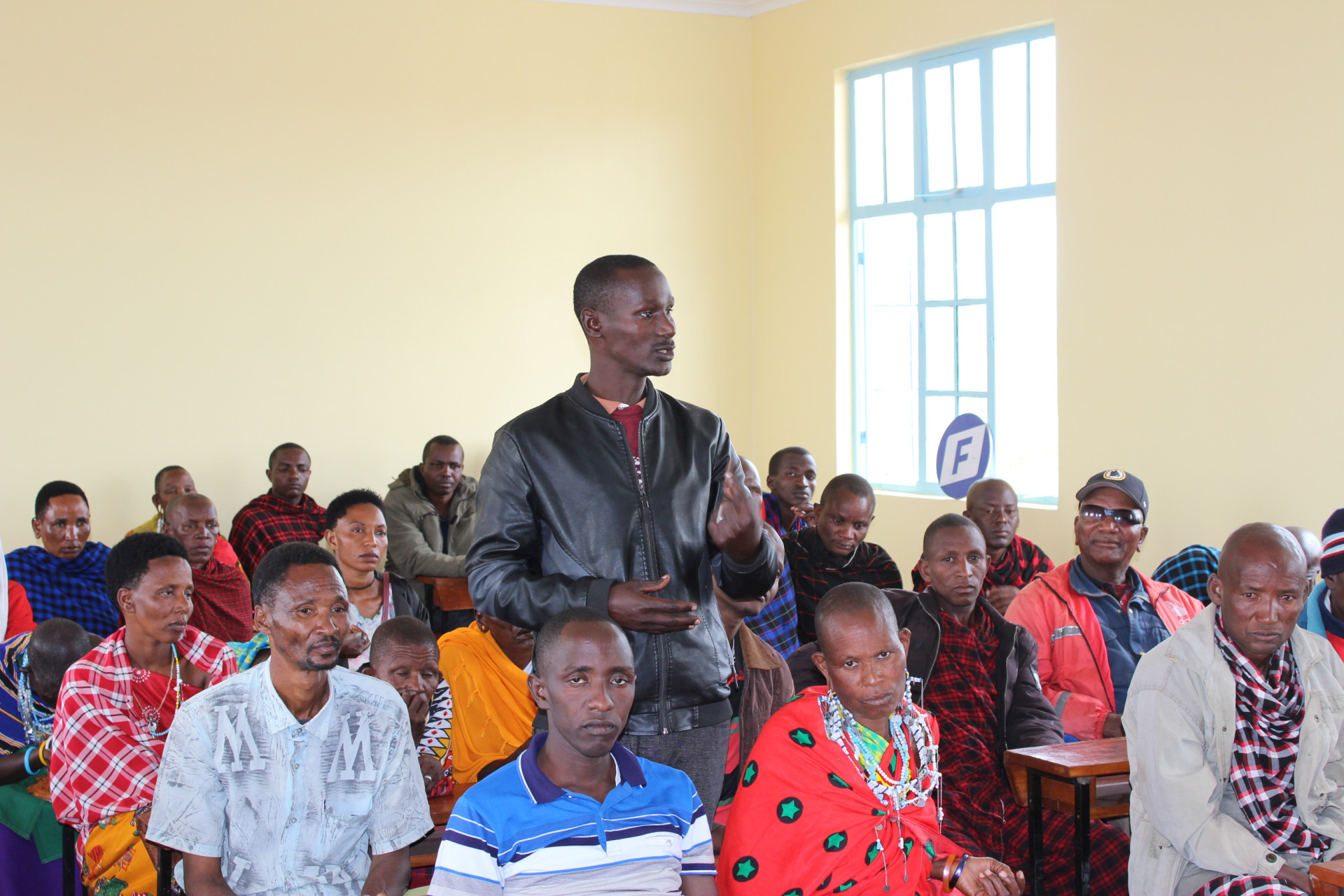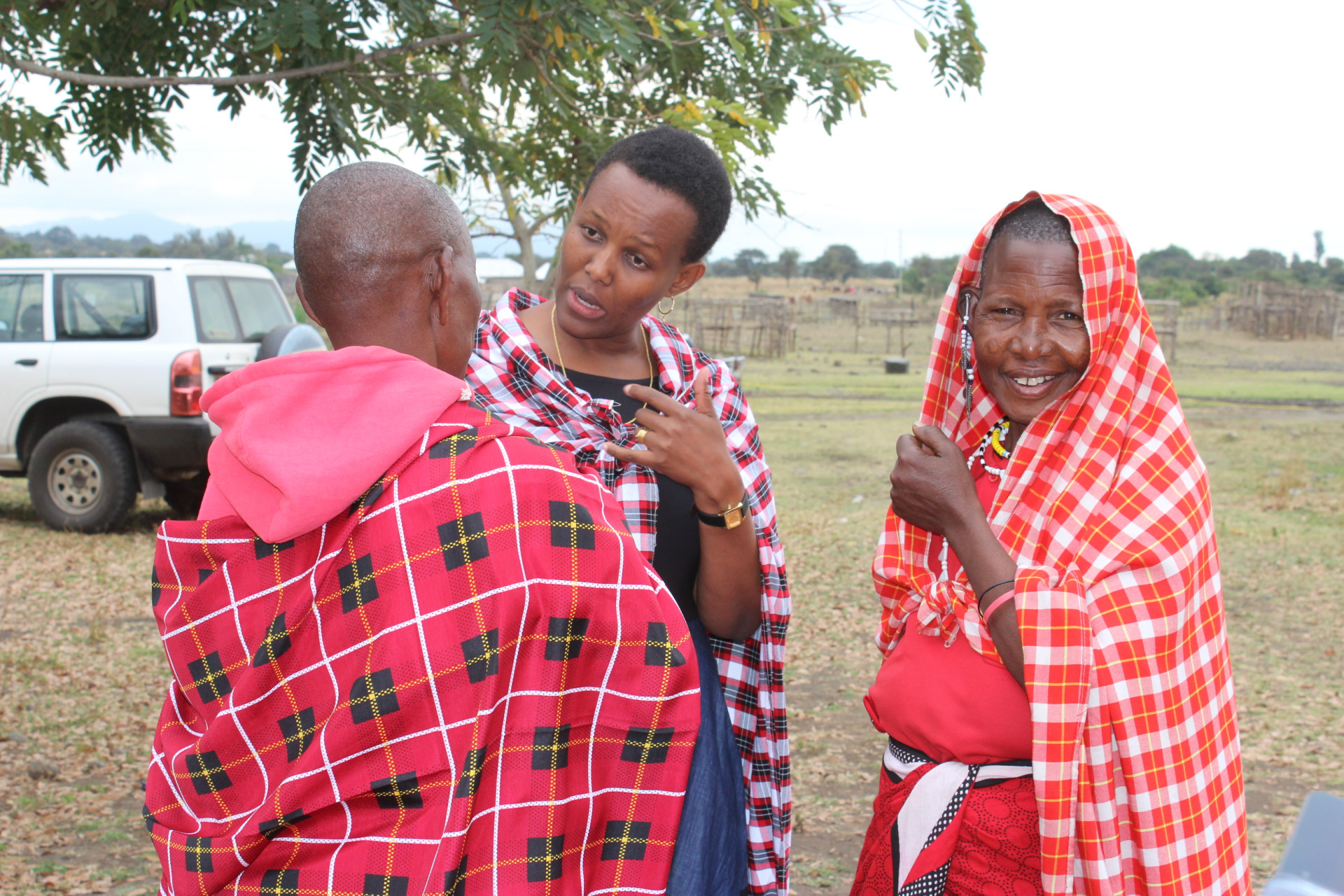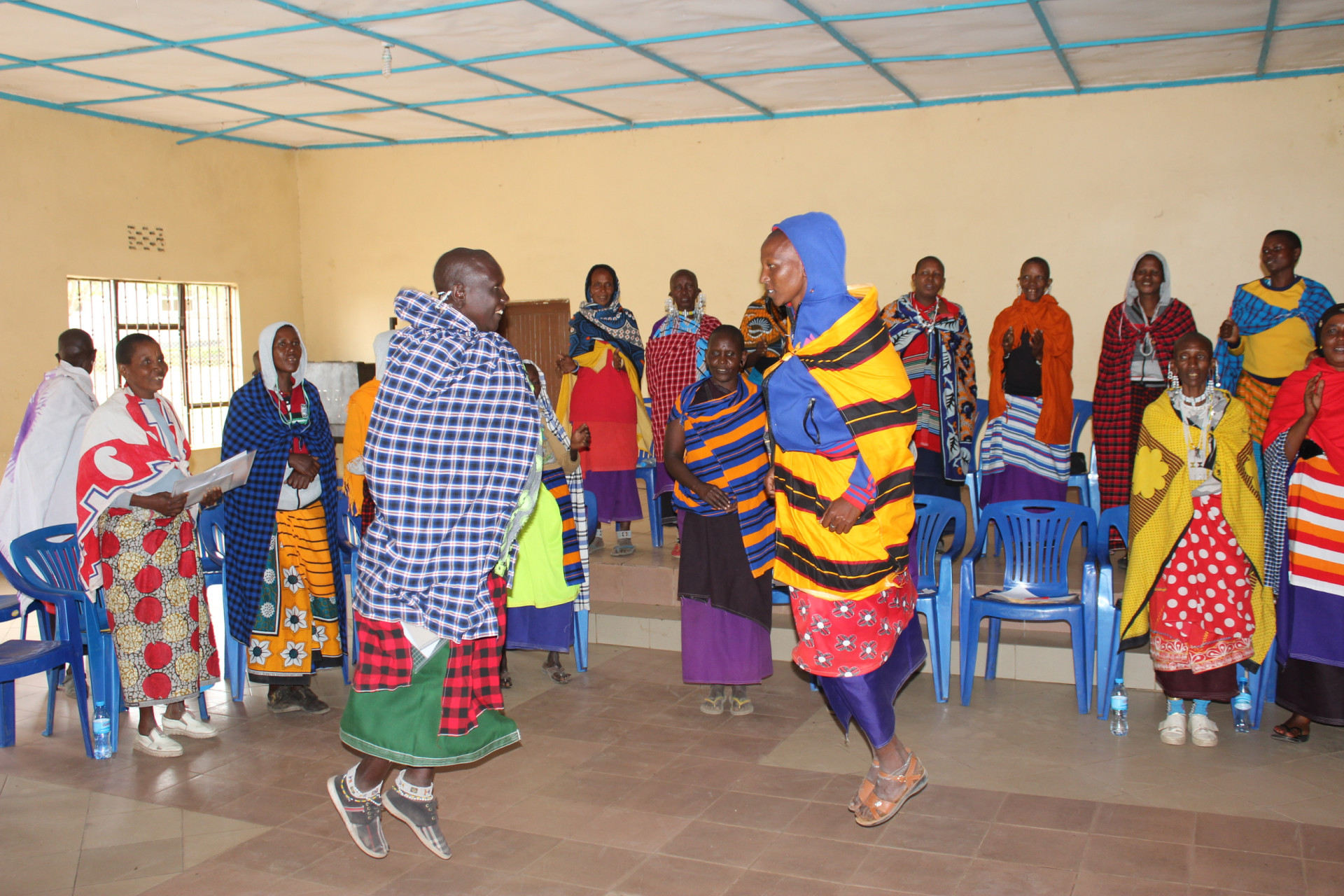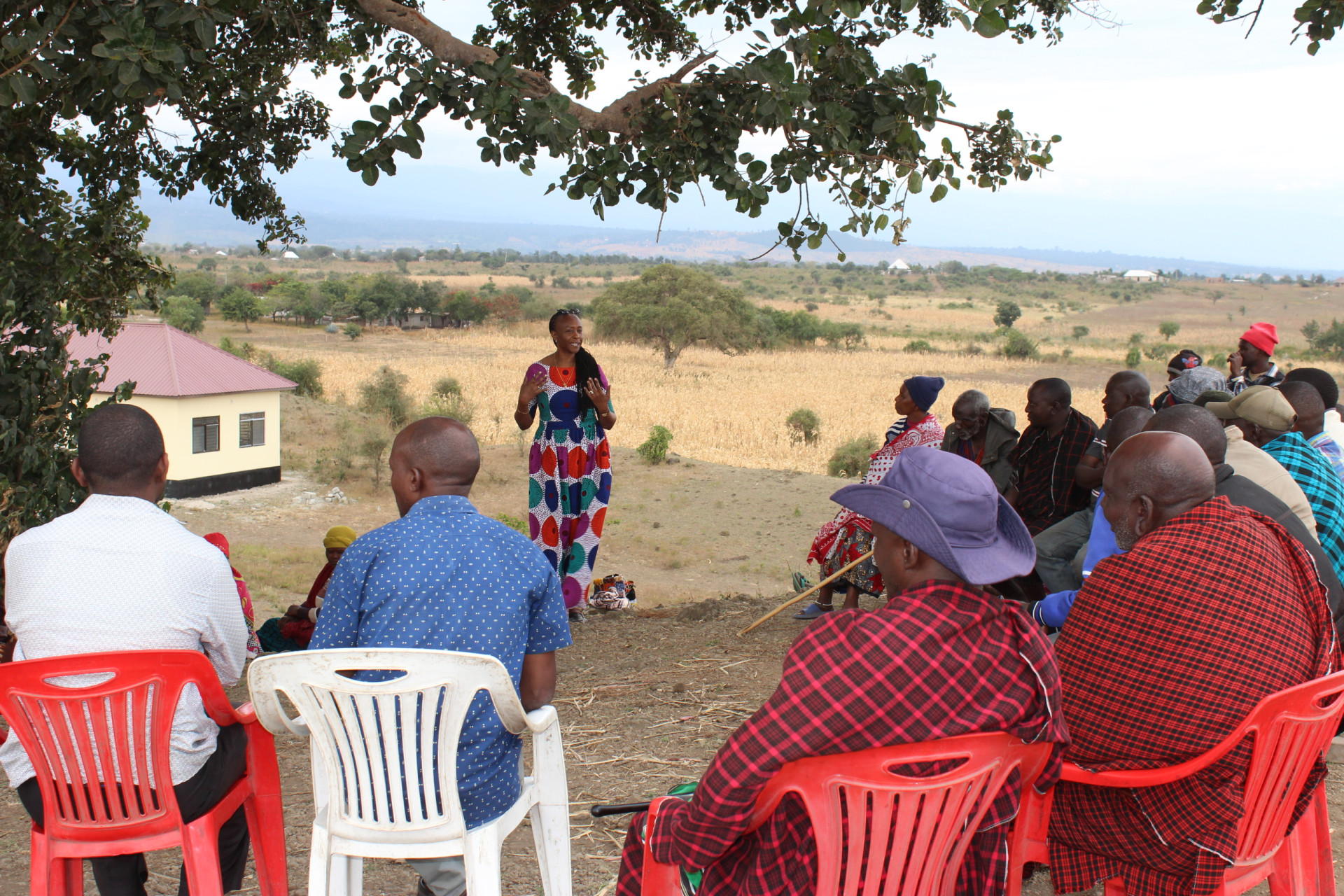Overcoming Resistance to Change
Tanzania
Tanzania Programme Manager Veni Swai speak with villagers and Clan Leaders on Human Rights issues in Embukoi
Female Genital Mutilation (FGM), a deeply ingrained cultural practice in some communities that has lasted for generations, inflicts immense suffering on women and girls and infringes upon their rights. Overcoming resistance to change and addressing this issue requires a comprehensive approach that includes involving community leaders, providing alternative livelihood opportunities for FGM practitioners and promoting awareness of human rights. The successful collaboration with Maasai clan leaders in the battle against FGM has had a transformative impact on Donyomurwa Ward in Siha, Kilimanjaro region. The Friedrich Naumann Foundation for Freedom (FNF) and its partner organization, the Kilimanjaro Women Information Exchange and Community Organization (KWIECO), have been diligently working with this community.
The Maasai community is deeply patriarchal, with elder Maasai men wielding significant decision-making authority. The collaboration with Maasai clan leaders, known as Leguyanans, marks a momentous stride in challenging the established norms within this conservative society.
A pivotal outcome of this collaboration, inter alia, is the initiation of a small business project that involves 85 women who were formerly traditional practitioners of FGM. These women performed FGM as both a cultural rite of passage and a source of income. They have been afforded the opportunity to acquire new skills and establish small businesses as alternative livelihoods. This not only offers them financial sustenance, but also serves to undermine prevailing gender norms and dismantle the patriarchal structure that perpetuates FGM. In addition to addressing gender-based violence (GBV), the intervention has included the establishment of ward bylaws through the local government as a tool for creating legal frameworks and community regulations to combat harmful practices. The endorsement and advocacy of Maasai clan leaders in adopting these bylaws have played a critical role in fostering progressive change within the Donyomurwa community. Through the collective initiatives, approximately 1,275 girls are expected to be safe from undergoing FGM and forced child marriages in the next year, thereby upholding their rights, dismantling cultural barriers, and fostering progressive change within the community.
What sets this approach apart is that it was not imposed on the community. Instead, the Foundation and its human rights partner organization went to great lengths to design collaborative programs that helped the target audience understand the benefits and advantages that would come from discontinuing these regressive practices. This approach ensured that the community embraced the project. It resonated with their values and interests, fostering a sense of ownership and shared responsibility for it to continue making a lasting impact.

Youth voice was represented during sessions in each village

Elizabeth Mushi - KWIECO with Donyomurwa Maasai women - advocates of change against FGM

Traditional dances and songs was part of celebrating achievements during training sessions with women.
Women’s rights

